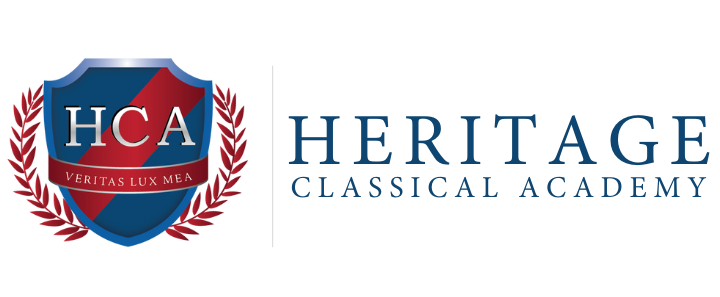
Logic School
6th through 8th Grade
During the Logic (middle school) years, students’ minds become more inquisitive, curious, and prone to question and challenge information. Students learn how to organize facts and data into well-reasoned, cogent arguments. Facts are not enough! There is a strong emphasis on developing students’ reasoning, creating logical frameworks for information, practicing persuasive writing, and sharpening their ability to analyze cause and effect relationships.
Classically trained students become skilled in logical thinking, writing, and debate. They know what they believe and why. Academic subjects are interrelated and integrated with God and His Word at the center of it all. Students are prepared to serve Christ and His kingdom as they are equipped to labor for Him regardless of their calling.
Classes At A Glance
-
Students formally study logic in seventh and eighth grade. Students are introduced to terms and definitions used in logic, statements and their relationships, syllogisms and their validity, and arguments in plain text. Students also explore truth tables and formal proofs to challenge their ability to think abstractly and develop their problem-solving skills. They learn to apply the tools and techniques of logic to the world around them by evaluating writings from philosophy, theology, and the Bible. The students' study of arguments, both valid and invalid, will culminate in a number of formal debates which help them to apply their knowledge and skill to the art of persuasion.
-
Sixth through eighth grade students dig deep into science through three robust courses: Life Science, Physical Science, and Earth Science. Through this rich curriculum, students gain a depth of knowledge, which prepares them for future courses and also develops in students a sense of wonder and responsibility for God's world.
We take science and math seriously – not merely for the sake of being ready for college or the workplace, but because we know that by studying the works of God expressed in all that He has made, we catch a glimpse of His character in the complexity and orderliness of His creation.
-
HCA's Humanities curriculum engages our students with the Great Conversation. It is a robust, cross-curricular course covering history, literature, composition, philosophy, and theology. Here students listen as the greatest minds in Western history detail and debate the nature of God, man, meaning, and salvation. From these arise politics, education, virtue, pastime, culture, and everything else. Spanning from creation to Christ to the Middle Ages, students engage firsthand with primary and secondary sources from ancient Hebraic, Greek, Roman, European, and Northern African traditions.
By providing a cumulative, chronological narrative of Western civilization, students are filled with a scope that allows for perspective. What is worthwhile? What is true, good, and beautiful? Since Christ is the Author, Sustainer, and Purpose of all things, history is the Christian’s playground.
What to expect at the Logic School.
Click the buttons below to learn about our classes and curriculum:



